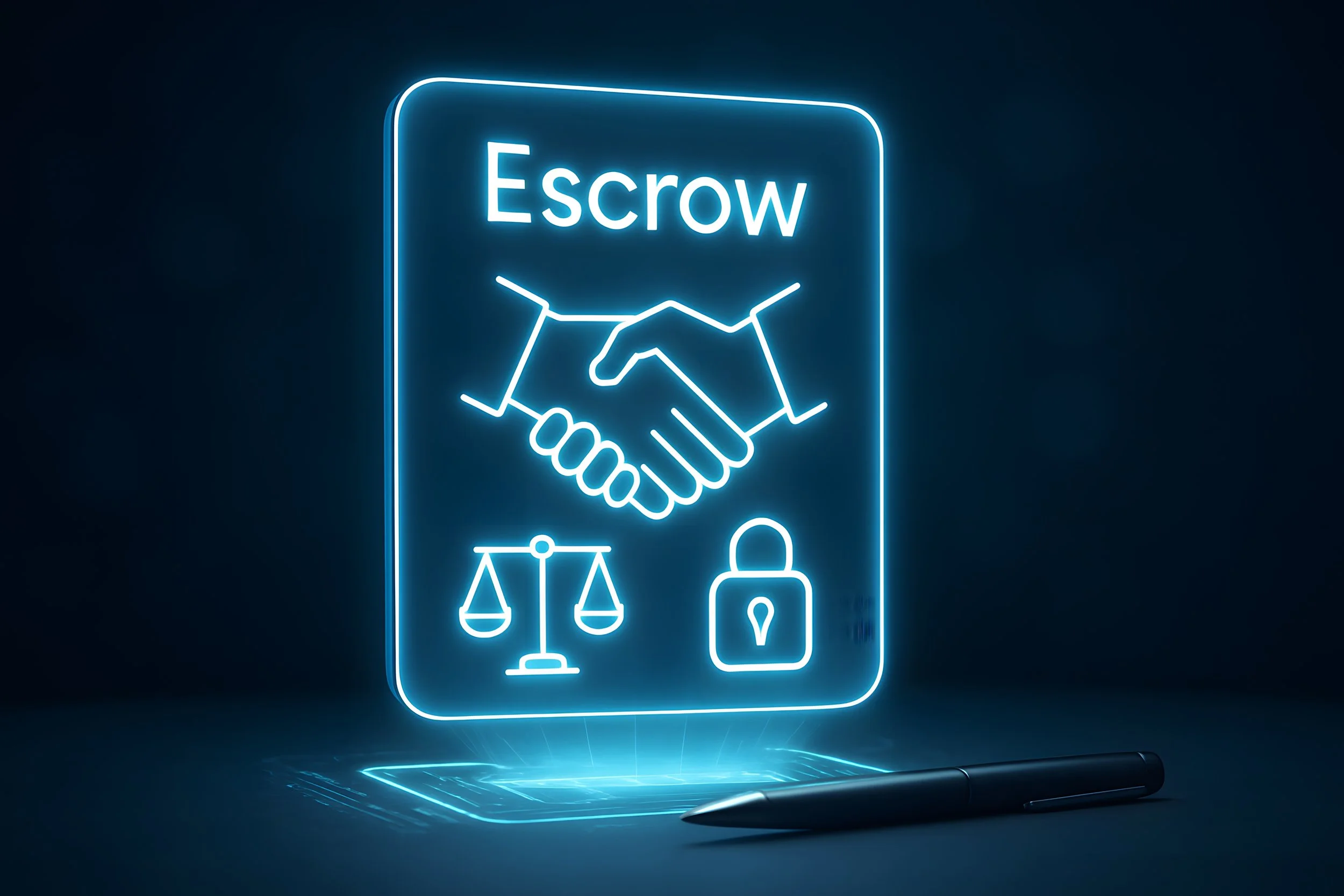What Is Escrow and Why Is It Part of Your Mortgage?
Buying a home, particularly for the first time, comes with a lot of new terms and processes that can feel overwhelming. One of the most common is escrow. At first glance, escrow looks like a big added expense, and homebuyers are right to wonder what that large pool of cash is being used for. The answer is, ‘A lot of things, and all of them necessary.’
Escrow can be looked at as a convenience-enhancing service lenders extend to homeowners with mortgages. It’s not optional, but even if it were, you’d probably still want it.
Two Types of Escrow
When most new homebuyers first hear the term escrow, it’s in reference to purchase escrow. This is a temporary account managed by a neutral third party, such as a title company or attorney. It holds your earnest money deposit and the funds needed for closing until all conditions of the sale are met. Once the transaction is complete, that escrow account is closed.
Your mortgage company will create a new escrow account once you officially become a homeowner. When you see the escrow line on your mortgage statement, it’s referring to your mortgage escrow (or impound) account that is managed by your lender or loan servicer.
Unlike the purchase escrow account, the mortgage escrow account isn’t temporary. It stays in place as long as your loan requires it.
Why Mortgage Escrow Is a Good Thing for Homeowners
As a homeowner, you don’t need to make separate monthly payments for taxes or insurance because it’s all rolled into your one mortgage payment. The lender calculates what you’ll owe, collects this money, places it in escrow, and then uses it to pay those bills when they come due.
Think of escrow as a savings account your lender manages on your behalf. You make small deposits throughout the year, and the lender makes sure your taxes and insurance are paid in full and on time.
There’s no risk of not saving enough to pay your property taxes or home insurance, or forgetting to send in your payment on time. Mortgage escrow gives you fewer things to worry about as a homeowner.
What Does Escrow Cover?
Property Taxes
The Ouachita Parish Assessor’s Office determines the taxable value of your property, which is updated through regular reappraisals. That value is then used by local taxing authorities, like the parish, the City of Monroe, police and fire districts, and the school board, to calculate your property taxes.
Louisiana has a particularly complex property tax system, and it’s not always easy to know what you’ll owe given the number of taxing authorities and changing property values. Escrow makes meeting your property tax obligation much easier.
Private Mortgage Insurance (PMI) and Homeowners Insurance
Most new homeowners, unless they had the cash to make a 20% down payment, will need private mortgage insurance. All homeowners with a mortgage are required by the lender to have homeowners insurance.
Both PMI and home insurance are paid out of escrow. As long as you make your monthly mortgage payments, escrow guarantees both premiums are paid on time so the policies never lapse.
Why Is Escrow Required for Mortgages?
Escrow is not optional for most borrowers, and the reason comes down to protection and predictability.
Protects the Lender’s Investment
The home serves as collateral for your loan. If property taxes go unpaid, the government could place a lien on it. If insurance lapses and the home is damaged, its value could drop dramatically. Both scenarios would be bad for the lender. Escrow ensures those risks are minimized.
Protects the Homeowner
Even though escrow is designed to safeguard the lender, it also provides real functional benefits for homeowners. By rolling property taxes and insurance into monthly payments, you don’t have to budget for large lump-sum bills. You also don’t have to worry about setting money aside on your own or missing deadlines.
What Happens if Costs Change?
Because property taxes and insurance can change, your lender will review your escrow account at least once a year in what’s called an escrow analysis. Federal law requires this annual review to ensure enough funds are collected to cover upcoming bills.
If the analysis shows your lender didn’t collect enough in the previous year, your monthly payment will be adjusted upward to make up the shortfall. If they collected too much, you may receive a refund or see your payment slightly reduced.
If it turns out you owe extra, you’re not required to make up the shortfall all at once unless you choose to do so. The additional payments are usually spread out over at least 12 months.
Work With a Local Monroe and West Monroe Lender You Can Trust
The mortgage process can feel overwhelming, especially if it’s your first time buying a home. Escrow is just one of several moving parts that can make the journey confusing. At Ouachita Valley Federal Credit Union, our mortgage team is here to walk you through every step, explain your options in plain language, and make sure you feel confident about your decisions.
Call us today at 318.387.4592 or start your application online to connect with a mortgage professional who’s ready to help you move forward.


